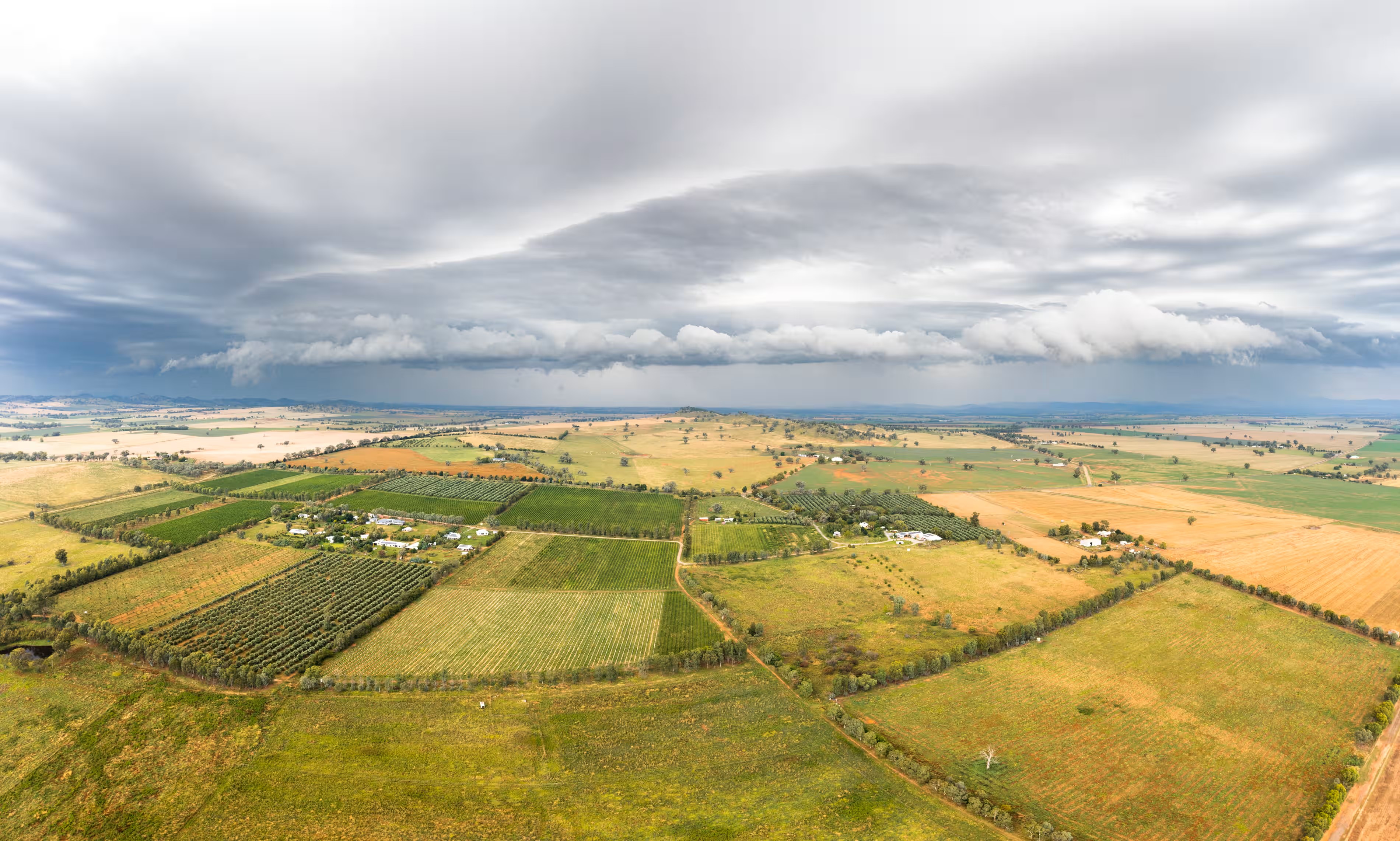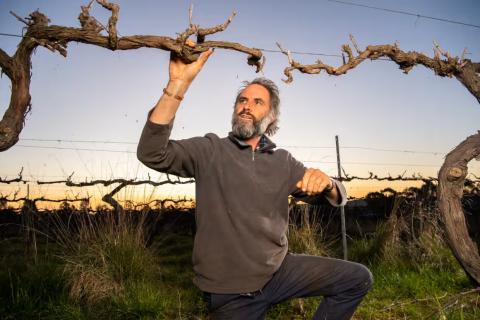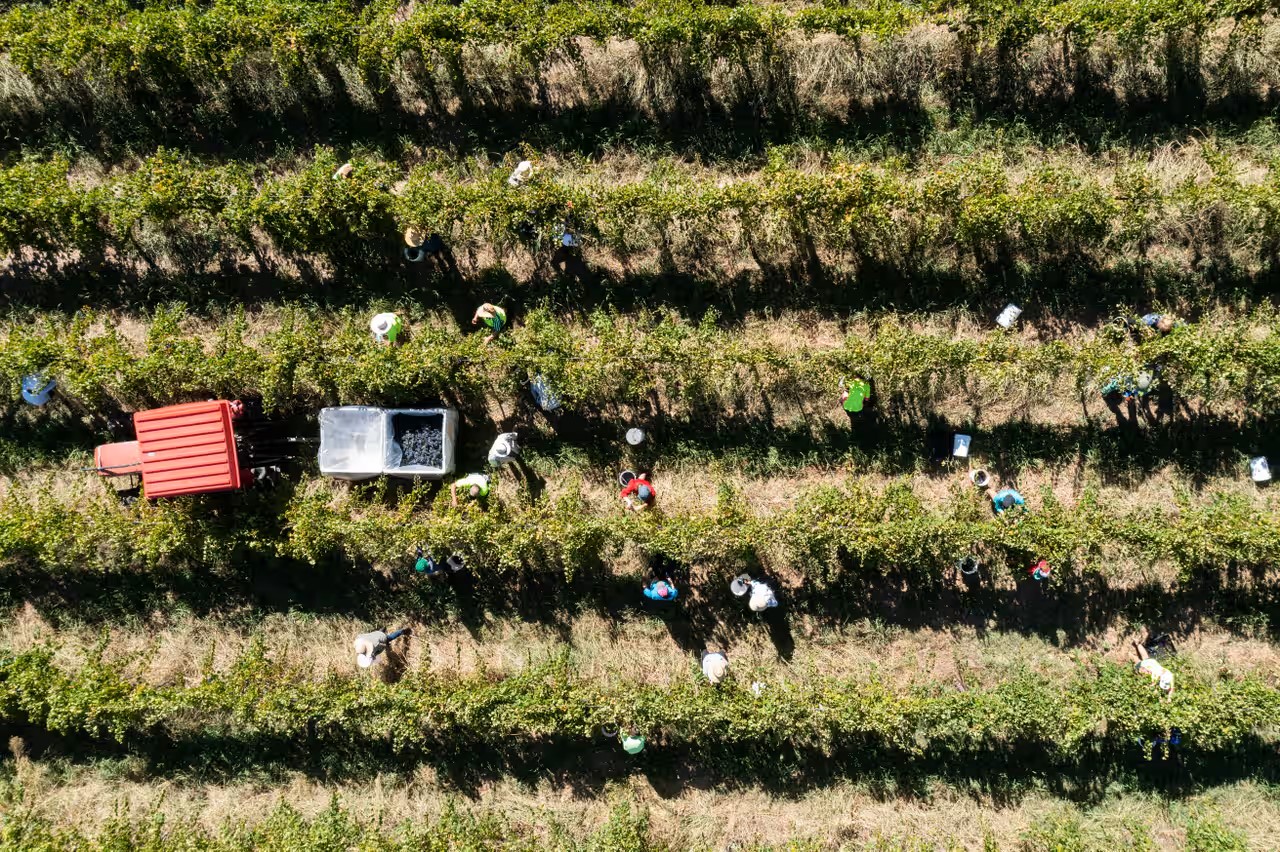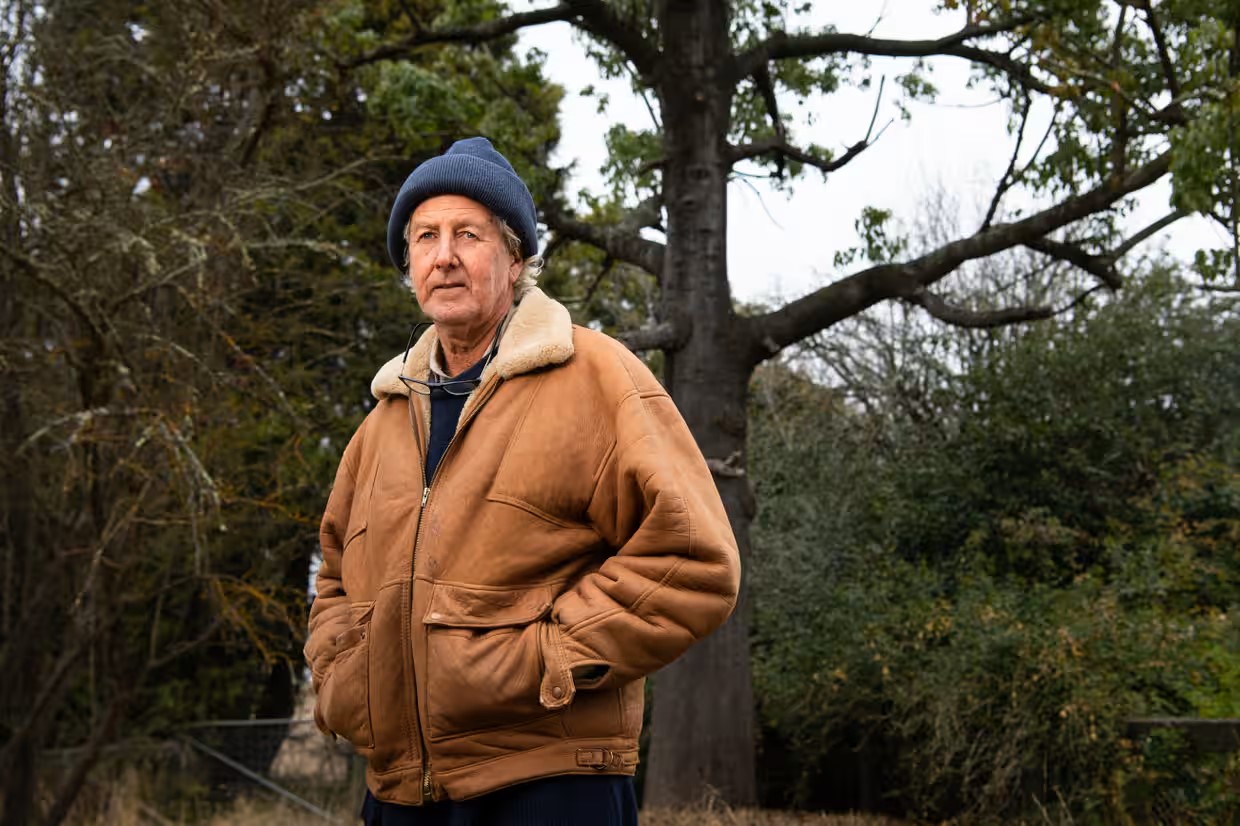
by Stuart Walmsley
Courtesy of Guardian News & Media Ltd
Earlier this year, NSW wine and olive oil producer Sam Statham received a phone call from a committed vegan.
The caller was seeking an assurance that animals weren’t used to graze the olive grove and vineyard. But the Stathams regularly agist sheep for exactly that purpose, and as a natural source of fertiliser.
“I had a sudden realisation that some people, not only do they not understand where their food comes from, they also might not understand what an ecosystem is or how nature actually works,” says Statham, who runs the family farm Rosnay Organic near Canowindra in the state’s central west.
It’s the main reason Statham now offers farm tours at Rosnay, which is certified to Australia’s national organic standard. He tries to provide clarity to visitors around the meaning of terms such as organic and regenerative, which are increasingly used to promote supermarket products.

Organic farmer Sam Statham wants to help consumers make greener choices. Photograph: Stuart Walmsley
“We need consumers to actually come out and visit the farms,” he says. “If you could just get people out so they can see that animals and plants have to be in an ecosystem together, and there’s a cycle of life that happens in there.”
Statham sympathises with food shoppers confused about how to make greener choices.
“I think even the regenerative [agriculture] people view the organic people with suspicion,” he says.

Grapes are hand picked at Rosnay Organic, near Canowindra in central west NSW. Photograph: Stuart Walmsley
“They’ve got their own conferences and networks, which very rarely overlap with organic farmers who have been doing much the same practices that are espoused by the regenerative farmers for 30 years.”
Restoring degraded soil is at the heart of regenerative agriculture, a farming practice that relies mainly on natural rather than artificial inputs – manure from grazing animals rather than superphosphates – as well as longstanding practices such as rotational grazing and multi-species pastures, and restoring a landscape’s natural water cycles.
Organic farmers mustn’t use most synthetic fertilisers, chemicals, antibiotics, hormones or GM products, which means organic farming generally produces less pollution than traditional farming. However, proponents of regenerative agriculture argue that while enhancing sustainability is an aim of organic farming, it does not guarantee improved land management practices.
On the other hand, regenerative agriculture comes with no guarantees – there isn’t even broad agreement between practitioners of what the term means. Last year, the CSIRO released a paper seeking to clarify the movement’s ‘essential characteristics’ and bridge the gap between belief-based arguments and agricultural science. It noted that regenerative agriculture “does not offer new advice on farm practices beyond what is well known and currently considered best practice”.

Wool producer Charles Massy made the ‘huge mental shift’ from chemical-based farming practices to more natural methods. Photograph: Stuart Walmsley
Many ‘traditional’ farmers also view regenerative agriculture as a buzzword used to improve sustainability credentials, without necessarily improving practices.
Fifth-generation wool producer Charles Massy wrote about his transition from traditional to regenerative agricultural methods in his 2017 memoir Call of the Reed Warbler. It required “a huge mental shift”, he said.
“What was lacking with my old industrial approach was the biology was pretty-much non existent, so the source of all the nutrients was out of an industrial bag, rather than the microbiology [of the soil],” he says from his farm near Cooma in NSW.
However, regenerative agriculture is an ideology with “many definitions, but no consistency”, says Katie McRobert, general manager of the Australian Farm Institute (AFI).
“So, you can see why people become really quite cynical about the use of the term.”
The AFI is working on an Australian agricultural sustainability framework to help people, inside and outside the industry, better understand the terminology.